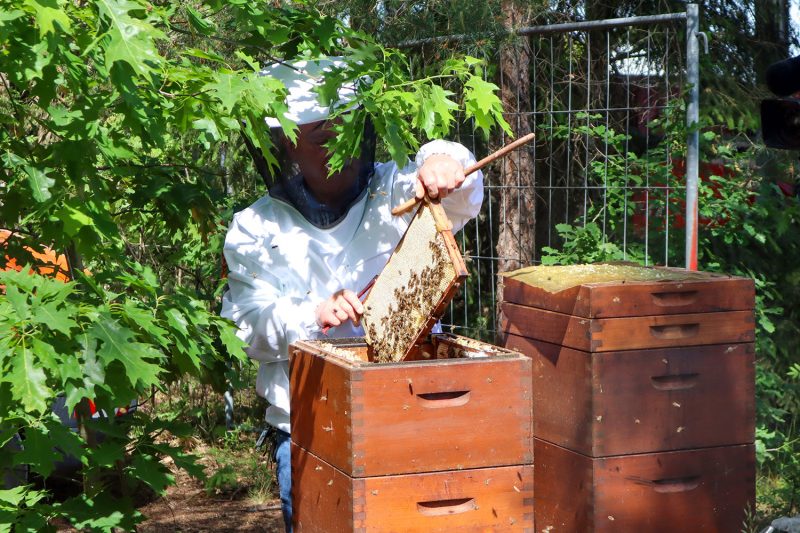World Bee Day, proclaimed by the United Nations General Assembly, was celebrated on Friday. On this occasion, the German airport in Nuremberg drew attention to the fact that this insect species had already settled on the site in 2003.
The bees take on an important task and help to check whether air traffic is affecting the air quality around the airport. Two peoples are currently flying an area within a radius of up to three kilometers. Samples of the collected pollen and the airport honey obtained from it are submitted for laboratory testing. The spectrum of analysis includes organic air pollutants that are typically traffic-related. In addition, the samples are examined for heavy metals. This procedure is called biomonitoring.
The present laboratory results are a clear confirmation of the environmentally conscious traffic concept and the forward-looking planning: All previous findings were well below the legal limits. In addition, the airport honey is tested for quality by the Bavarian State Institute for Viticulture and Horticulture. So far, it has always been classified as high-quality and particularly species-rich honey.
Only a small part is needed for the analysis of the honey. The rest of the airport honey is filled into jars and given away on special occasions, for example. The environment department of the airport and employees who are also passionate about beekeeping in their private lives are responsible for the nurturing and care of the airport bee colonies.







 trail (for them it's free to use)
trail (for them it's free to use)